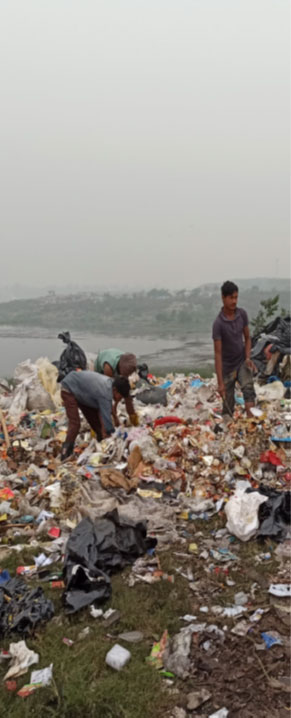
Sustainable Solid Waste Management for the Urban Poor
August 31, 2021Dhaka is one of the most populated cities in the world, with a density
of 23,234 people per square kilometer within a total area of 300 square kilometers. According to
World Population Review Dhaka’s 2021 population is now estimated at 21,741,090.6 More than 31%
of urban dwellers are living in slum in Dhaka City, mainly, they are the rural-urban migrants.7
The Dhaka City Corporation was dissolved by the Local Government (City Corporation) Amendment
Bill 2011 on 29 November 2011 and divided into two autonomous bodies, Dhaka South City
Corporation (DSCC) and Dhaka North City Corporation (DNCC).8 DNCC has an area of 192.66 sq. km,
consists of 54 wards, with a population of 24,97,116,9 whereas with an area of 109.25 square
kilometer, consists of 75 wards DSCC has a population of approximately 1,20,00,000.10

Policy Brief on Sustainable Solid Waste Management
August 31, 2021Existing laws and rules such as ECA, 1995; ECR, 1997; and Local Government (City Corporation) Act, 2009 govern the solid waste management system in Dhaka. However, there is no complete guideline for solid waste management. In this context, Dhaka South City Corporation and Dhaka North City Corporation are unable to collect at least a third of the waste generated in Dhaka every day. Such unregulated and unprocessed solid waste poses varied and disproportionate risks to the urban poor. As a potential pro-poor legal instrument, the draft Waste (Solid Waste) Management Rules 2021 appears as a feasible solution for Dhaka’s waste management woes. This policy brief outlines how policy reforms and actions can lead the way for a sustainable solid waste management system.
View Full Paper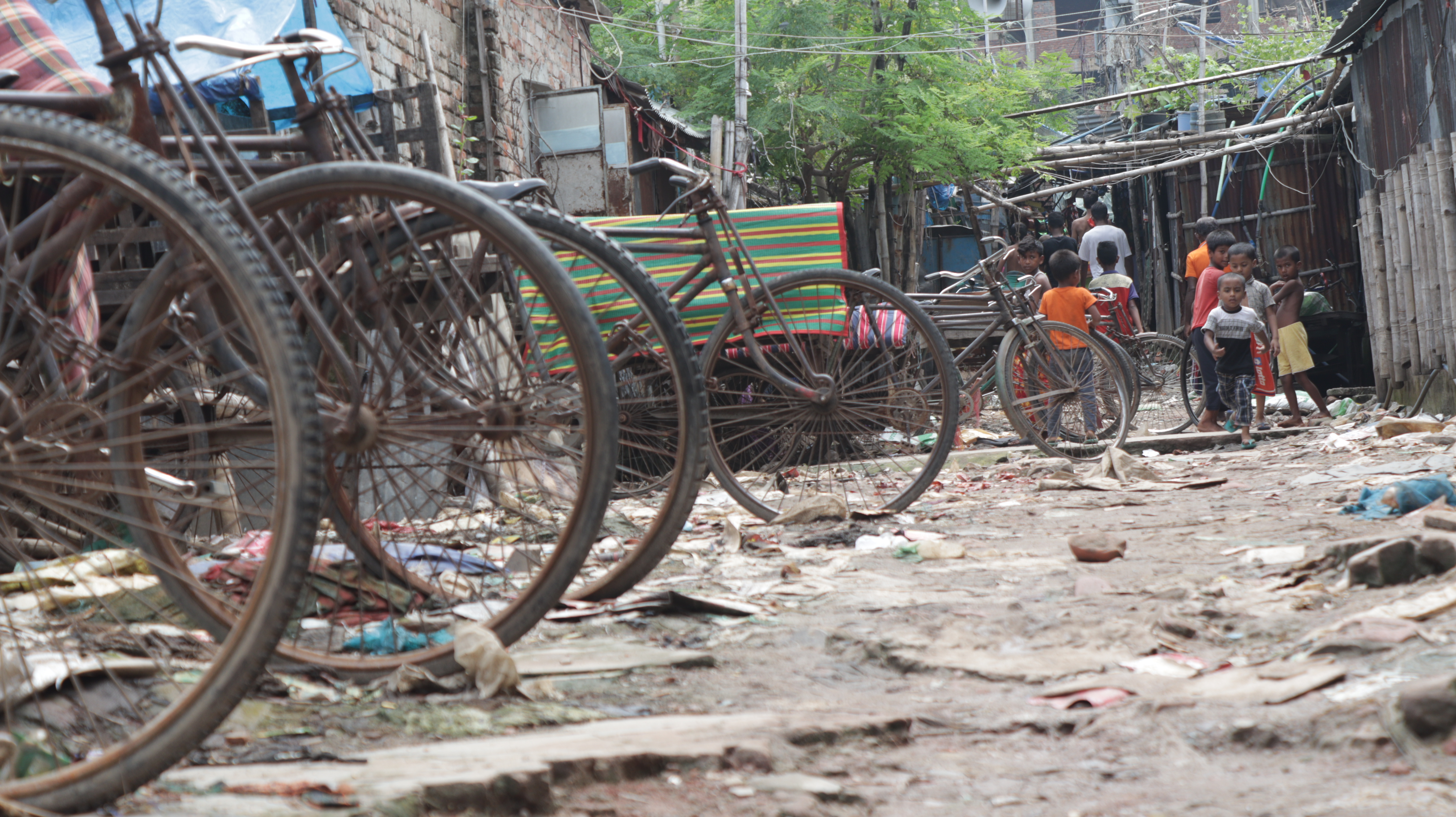
কঠিন বর্জ্য ব্যবস্থাপনার উপর 4R রোড ম্যাপ
November 2021দুঃস্থ স্বাস্থ্য কেন্দ্র (ডিএসকে) এর উদ্যোগে, কাউন্টারপার্ট ইন্টারন ̈াশনালের কারিগরি সহযোগিতায় এবং ইউএসএইডে’র অর্থায়নে সম্পাদিত এই গবেষণায় কঠিন বর্জ্য ব্যবস্থাপনা বর্জ্য হ্রাস, এর পুনঃব্যবহার ও পুনঃচক্রায়নকে গুরুত্ব দিয়ে একটি রোডম্যাপ তৈরি করা হয়েছে। নগরীর কঠিন বর্জ্য ব্যবস্থাপনার সাথে সম্পর্কিত বেশ কিছু সরকারি নথি, প্রতিবেদন ও গবেষণা থাকলেও এগুলোর কোনোটিই পরিষ্কার কৌশল বা রোডম্যাপের ধারণা দেয় না। কঠিন বর্জ্য ব্যবস্থাপনা বিধিমালা ২০২১ কঠিন বর্জ্য ব্যবস্থাপনার নীতি নির্ধারন করলেও তার বাস্তবায়নে কোন কর্মপরিকল্পনা প্রদান করেনি। ঢাকা কলিং প্রকল্পটি এই শূন্যতা পূরনকল্পে কিছু নির্দিষ্ট কার্যক্রম বাস্তবায়নের উদ্যোগ নিয়েছে যাতে করে এই কর্মসূচি বাস্তবায়নের মাধ্যমে সুনির্দিষ্ট কিছু লক্ষ্য পূরণ করা যায়।
View Full Paper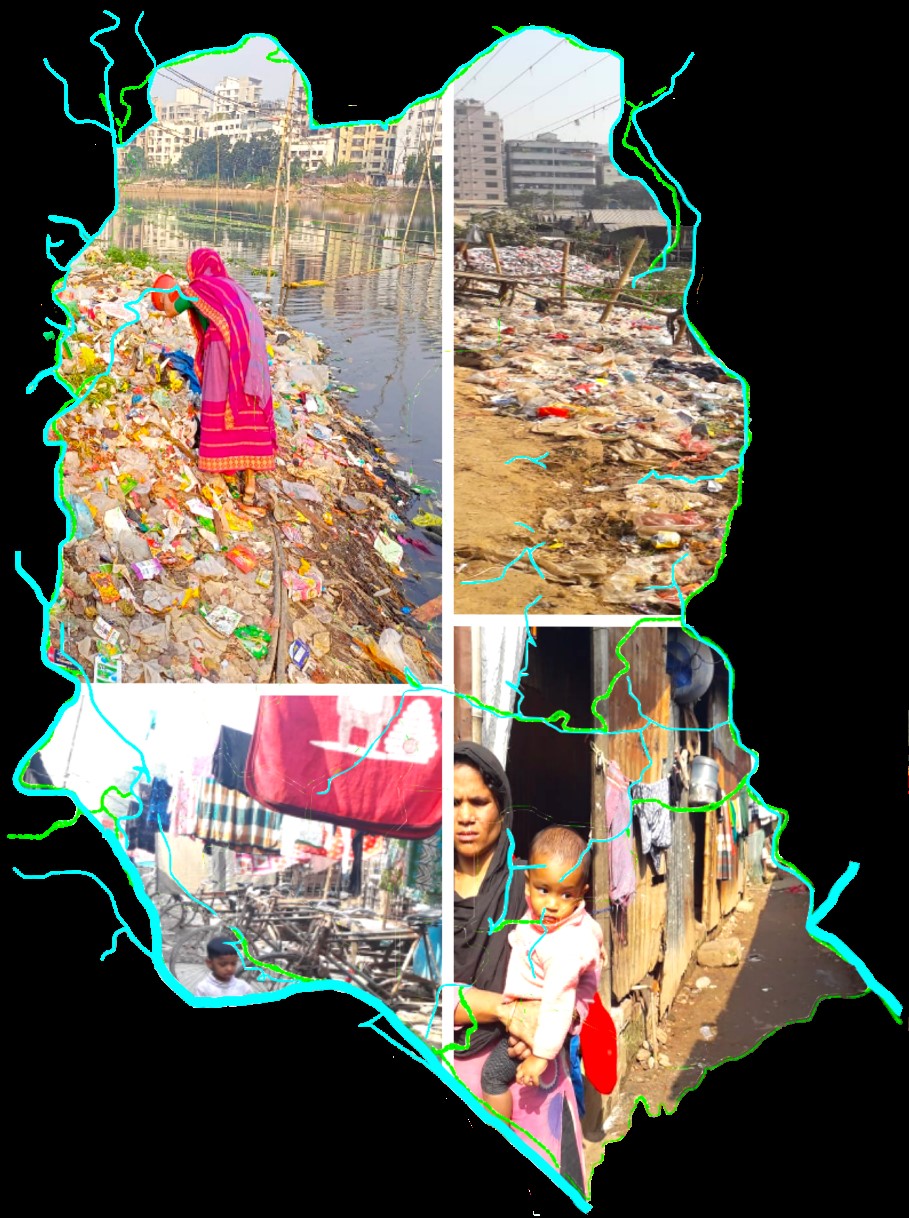
4R Road Map On Solid Waste Management
November, 2022The study titled “4-R Road Map on Solid Waste Management” of the Dhaka CALLING Project. Dushtha Shasthya Kendra (DSK) along with the Bangladesh Resource Center for Indigenous Knowledge (BARCIK), Coalition for the Urban Poor (CUP), and Institute of Innovations for Gender & Humanitarian Transformations (inSights) has been implementing the Dhaka Citizens Advocacy Collaboration against Polluting Environment (Dhaka CALLING) project which focuses on how to improve the governance system of solid waste management through strengthening the capacity of the CSOs, promoting civic participation, and cross-sectoral partnership in the process. The project is being funded by the United States Agency for International Development (USAID) and technically supported by the Counterpart International’s (CPI) Promoting Advocacy and Rights (PAR) Activity. The project is being implemented in Ward 06 (Molla slum) and Ward 19 (Korail slum) of Dhaka North City Corporation (DNCC) & in Ward 14 (Balurmath slum) and Ward 55 (Boubazar slum) of Dhaka South City Corporation (DSCC) for the period of January 2021 to December 2022.
View Full Paper
নগরের প্রান্তিক জনগোষ্ঠীর স্বাস্থের উপর কঠিন বর্জ্য ব্যবস্থাপনার প্রভাব
October 2022বাংলাদেশ অর্থনৈতিকভাবে মধ্যম আয়ের দেশ হিসেবে স্বীকৃতি পাচ্ছে। ক্রমবর্ধমান নগরায়নের ফলে দেশের অর্থনীতি এখন শহরকেন্দ্রিক হওয়ায় শহর ও পৌর এলাকাগুলো দ্রুত সম্প্রসারিত হচ্ছে। প্রাকৃতিক দুর্যোগ, কর্মসংস্থান অর্থাৎ মৌলিক চাহিদা পূরণের কারণে গ্রাম থেকে দরিদ্র মানুষ নগরমুখী হচ্ছে। এসব মানুষের অধিকাংশই এসে আশ্রয় নিচ্ছে নিম্ন আয়ের (বস্তি) এলাকাগুলোতে। ইউনিসেফের একটি পরিসংখ্যান বলছে ঢাকা শহরের প্রায় ৪০ লক্ষ মানুষের বসবাস পাঁচ হাজারের অধিক বস্তিগুলোতে ( নিম্ন আয়ের এলাকা)। বাংলাদেশ ব্যুরো অব স্ট্যাটিসটিকের তথ্য অনুযায়ী, ১৯৭১ সালে ঢাকার মোট জনসংখ্যা ছিল ১৫ লাখ ২২ হাজার ৭৭৬ (প্রায়)। যা ২০২২ সালে বেড়ে দাঁড়িয়েছে ২ কোটি ২৪ লাখ ৭৮ হাজার। অর্থাৎ ৫১ বছরে ঢাকা জনসংখ্যা ১৪গুণ বেড়েছে।
View Full Paper
Final Narrative Report of the Study on Health Impact of Solid Waste Management
July, 2022This study has been commissioned by the Dhaka CALLING project under the
Promoting Advocacy and Rights (PAR) Activity financed by the USAID and technical support is
provided by the Counterpart International (CPI) to document an overall understanding of the
impact of Municipal Solid Waste (MSW) management on the physical and mental health of slum
dwellers. The study does not investigate the quantitative relationship between MSW management
and health impact rather it undertakes a qualitative assessment of the same to advocate for
policy change and to contribute in further research.
Data has been collected through desk review, key informant interviews with local and city–level
duty–bearers and service providers, community focus group discussions in four low–income
communities: Molla slum, Balur Maath slum, Korail slum and Bou Bazaar slum. Recommendations from
this study will influence future activities of Dhaka CALLING and supplement the ongoing advocacy
discussions at the national and city corporation levels in Dhaka
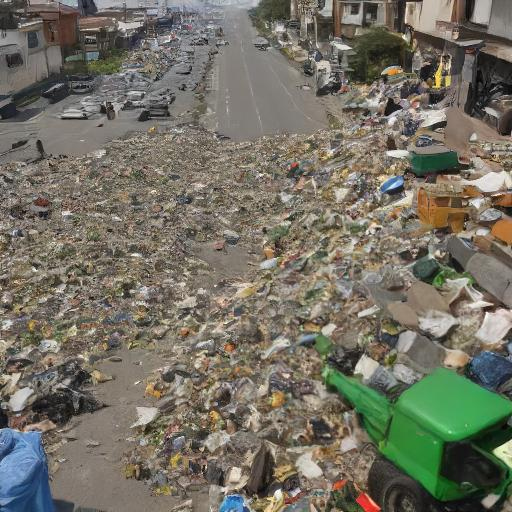
Road map to sustainable solid waste management
Bangladesh is indomitable in the journey of development. One of the fundamental elements of this development journey is sustainable, inclusive and liveable urbanization and the delivery of modern civic amenities to all, which is clearly pledged in the Constitution of Bangladesh and Sustainable Development Goal 11: “To build inclusive, safe, resilient, and sustainable cities and settlements.”
However, Dhaka is one of the most unliveable cities in the world, one of the reasons for which is the city’s waste management.
A clear electoral commitment of political parties and its proper implementation are necessary to overcome all these problems. In this context, "Dhaka Calling” Project, to ensure inclusive, integrated, and sustainable waste management for the protection of marginalized communities, women, and children, has developed a road map toward establishing smart and sustainable city and reach all most all the political parties, more than 88 influencial political leader requesting them to include the community recommendations in their election manifesto ahead of the 12th National Parliamentary Election
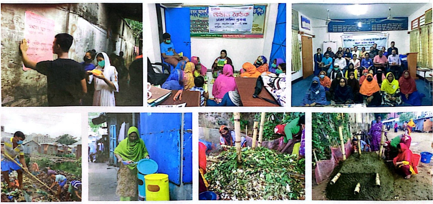
IEC BCC material
Our project aimed to empower slum communities towards active citizenship and environmental responsibility. We achieved this by developing and installing informative materials like display boards, leaflets, and brochures throughout the slums and public areas. This widespread dissemination aimed to engage a broad range of stakeholders, including residents, community organizations (CBOs & Federations), leaders, influential figures, youth groups, marginalized communities, women's groups, local government bodies (LGIs), and city officials. By reaching these diverse groups, we fostered a collective understanding of good governance principles and the importance of adhering to environmental regulations. This initiative empowers residents to become active participants in creating a well-governed and sustainable future for their communities.
View Full Paper